So it seems that natural hair is trendy now. We no longer repel and avoid having natural hair being displayed on TV, on big billboards or strolling down the streets. A few years ago if we saw a black woman on any type of media she had to fit the standards of Caucasian hair. So, we relaxed, permed, weaved our hair in the hopes of fitting into those standards. Now, I am told by the Atlanta Daily World that there is a significant decrease in relaxer sales and that black women are now straightening their hair less often according to Mr. Bulsara, a professional consultant on salon hair care. Could this be a sign that the natural hair movement is pushing its way into becoming a constant, natural presence in our community. Will black women be “allowed” to wear their hair out without being looked at with discomfort, disapproval and incredulous eyes? I mean, this happens even within the black community, does resistance to natural hair has it roots in ignorance or prejudice?
The truth is I never really thought about why I was forcing my hair to be something it wasn’t supposed to be and kept on relaxing it. I just followed the herd. I kept hearing from people (black people) that African hair is unruly, thick and unmanageable. Therefore, we need to relax it and do whatever it takes to subdue and tame it down. I secretly aspired to have long, black and straight Indian-like hair. Oh, yes! This was for me the epitome of beautiful healthy hair. This was what I was aiming to achieve while running away from the beast on top of my head. So yes, I too looked at natural hair with incredulous eyes. This is what I was “taught”. I was ignorant and prejudiced about my own hair.
Ignorance or Prejudice?
It’s sad, but these preconceived notions, concepts, ideas surrounding natural hair are for me the result of ignorance and prejudice even within the black community. Ignorance (or unfamiliarity, inexperience if you prefer) because we don’t know/can’t accept that African hair is different, it has different “catering” needs and will never do what Caucasian hair does, the way that it does. African natural hair can do some of the same things but in a different manner. Being different is not bad, being different is being unique. So many times we are eager to teach this to children, and yet we seem to be failing on this lesson with regards to natural hair.
Yes, we need to get educated on black hair so we can take advantage of the best it has to offer. When taken care of, black hair is so beautiful and versatile. It can go from waist to shoulder length (shrinkage), from silky straight to voluminous, from corkscrew to wavy curls and much more. I see women on YouTube, Pinterest and Instagram all the time showcasing the versatility of natural hair. Just like I didn’t know, I suspect many black women don’t know what to do or how to care for their natural hair. Once again we are ignorant about it.
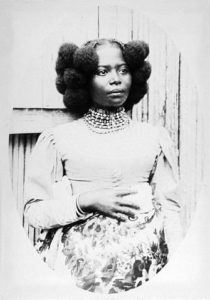
Nevertheless, we can educate ourselves about this. I’m still learning and educating myself. What about prejudice? Can we really be prejudiced about our own hair? I believe so, if by being prejudiced we mean taking a stand/position/belief that the only way to have beautiful hair, to be socially presentable and accepted is to have hair that looks more European/Caucasian like. If this is the case, then yes, I believe we are prejudiced. How many times are people bullied with deprecating remarks about their natural hair, even black men tell us they don’t like their women with nappy hair.
Rachel Espinet, of the Guardian Trinidad and Tobago digital Journal, recalls an incident where a school forbid natural hairstyles as they were too “unsettling and flamboyant” for school and she regretted the way Caribbean women were treated if their hair was not chemically straightened. This is reminiscent of a time when slaves were seen this way and forced to conform to different beauty guidelines in order to fit in and survive.
Have we been conforming to a beauty standard for so long that we no longer know our hair and have forgotten to take care of it? Or are some of us still conforming, under some sort of conditioned behaviour and thus renouncing our natural hair?
Hot Topic
The truth is this is a heated topic and people will have strong different opinions on why we should or shouldn’t wear our natural hair. I know that when I started my transitioning journey I received the “girl you don’t know what you will be dealing with” kind of look. It wasn’t verbalised, but I could see it in their eyes. Honestly, I didn’t care I was so tired of relaxing that the alternative looked a lot better. In a way, I guess you can say that I still don’t know what it’s like to have natural since I haven’t cut my relaxed hair yet. Nevertheless, seeing my natural hair grow strong and healthy and caring for it each month makes me feel like I have the most beautiful hair in the world. Transitioning gave me the time to get to know my hair and fall in love with it.
So when I hear statistic reports of increased sales of natural hair products, a spring of brands catering for African hair needs, growth in natural hair stylists, increased number of naturalistas and so on, I sincerely hope we are witnessing a new level of consciousness and not a fad trend. European/Caucasian standards of beauty have changed and continue to change, in my opinion due to the increase of mixed race people. We need to accept our hair the way that it is and not try to conform to a society that is presently changing these concepts and constructs.
However, it seems that while the natural hair movement is growing in European/Caucasian societies and natural hair is being celebrated, there is a strong resistance to it in African societies and there is still a long way to go before it can be worn proudly and without others feeling insulted or offended.
Ultimately, I’m not here advocating for all black women to go back to their roots and ditch the chemical straighteners. What I am advocating is for black women to be able to wear their natural hair without suffering prejudice or discrimination from other people.
What do you think about this subject? Is resistance to natural hair ignorance, prejudice or both? Or is something else missing in this discussion?

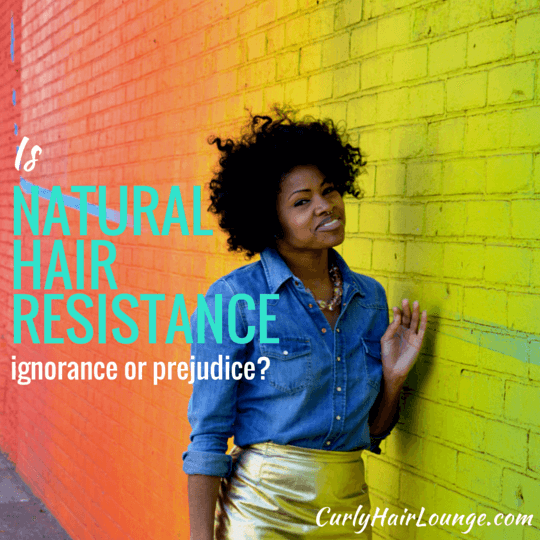
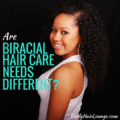

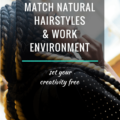
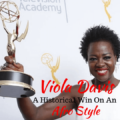
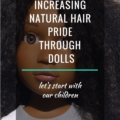
4 thoughts on “Natural Hair Resistance: Ignorance or Prejudice?”
Totally agree! To tell you the truth, I have very straight hair and I would die for some curves… But I believe that all types of hair has its own beauty and uniqueness. In my personal opinion, the most beautiful hair are those that look natural. When we embrace ourselves the way we really are, we feel more confident and we become more beautiful. I think it’s very nice what you’re doing here, inspiring women to feel comfortable with their own natural beauty.
Michelle.
I agree, each hair type has its own uniqueness and we should learn to love ours, respect each others differences and not try to be like our neighbour.
It’s interesting, I’ve been noticing the same thing. “Relaxing” your hair is not relaxing for your hair at all, and I truly believe everyone should be able to be themselves and present themselves without undergoing harsh chemical processes.
I don’t know if this is relevant or not, but in the past 5 years 60’s and 70’s trends have been coming back. Is this just a recurring fad, or the push our culture needs to be able to accept African hair? I don’t know. I certainly hope so.
My best friend has been relaxing her hair for years, and I can tell when she gets it done again because her hair starts breaking past her ears. I genuinely want, for her sake, natural African hair to become prevalent enough that she doesn’t feel pressured to do this anymore. I genuinely want, for her sake, our culture to get past the Caucasian hair preference. Let’s all respect each other and rock what we’ve got.
Yes Lauren, it seems like the 60’s and 70’s trends are coming back. We had the afro back then and even Caucasians styled their own version, wich maybe lessened some of the political stand. Then came Charlie’s Angels and everyone wanted straight hair again. Lets hope now mentalities are changed, but will take time.